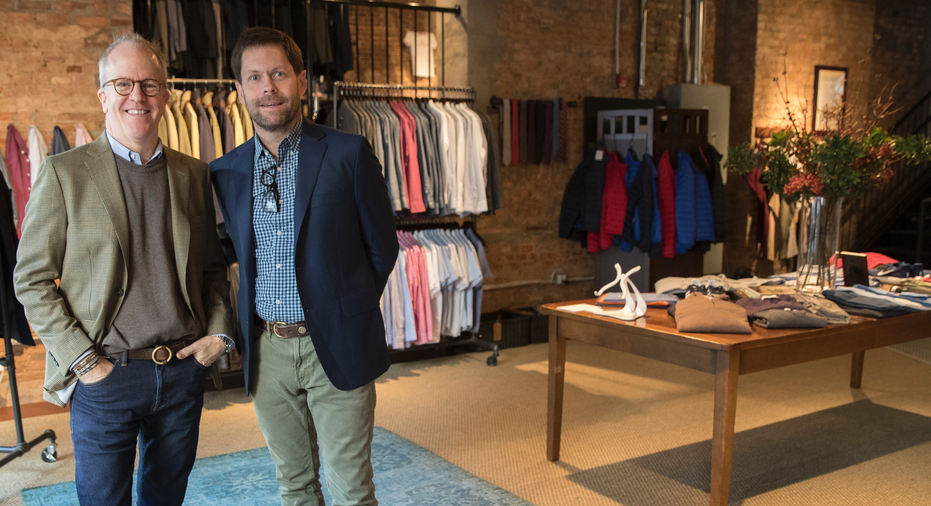Doorbuster discounts unlikely at small retailers this season

NEW YORK – When Mark Aselstine started online wine retailer Uncorked Ventures, he thought he should offer discounts — so gave 30 percent off to people buying wine baskets or subscriptions for monthly deliveries. But as he analyzed the sales, he didn't sense that the deal helped — and suspected that people who wanted top-of-the-line wine were actually turned off by it.
"People who were paying $50 or $70 per bottle of wine weren't looking for a discount," says Aselstine, whose business is based in Berkley, California.
Many small and independent retailers find that big markdowns don't motivate people to shop at their stores or websites. Or, they can't afford to use them — unlike national chains, they don't have the high volume of sales allowing them to slash prices without hurting earnings. Retailers who want their stores to have a certain cachet also believe slashing prices may lessen their appeal. And some store owners don't want to play cat and mouse with customers, continually lowering prices until shoppers finally buy. Those who do give holiday markdowns often make them modest, or limit them to big days like Small Business Saturday or Cyber Monday.
Last year, Aselstine decided to experiment, ending all discounts except for 10 percent off during the Thanksgiving weekend. His revenue rose 20 percent from a year earlier, consistent with the previous year's sales increases. His more-expensive wine sold better than when it was discounted. This year, he's not offering markdowns; even without a Thanksgiving discount, sales were good.
Lea Thompson learned the hard way that being a small retailer and offering big discounts don't mix. Wanting to be in line with other retailers during the 2016 holiday season, she gave customers of her online women's fitness store 15 percent off plus free shipping.
"After many customers took advantage of that, including a few with insanely large orders, we realized such deals actually cut into our profits significantly rather than helped them," says Thompson, owner of Fit Fly Fab, based in Dyer, Indiana.
This year, she did offer Cyber Monday deals, but they ended at midnight.
Profits aside, it can be risky for some small retailers to offer big discounts, says Elaine Kwon, an online retail consultant based in Seattle.
"The customer is debating between a brand they love that's full price and a brand giving them the discount," Kwon says. Shoppers may forgo the discounts if they believe they're getting a good value, even at full price, she says.
Peter Manning, a clothing retailer for men 5 feet 8 inches tall or under, tries to convey to shoppers that it offers quality at a fair price.
"We are clear in our approach, that we're not a traditional retailer offering big discounts. Once they understand our philosophy, they seem to be good with it," CEO Jeff Hansen says.
The New York-based retailer, which does 90 percent of its business online, does offer first-time buyers a 20 percent discount year-round, and established customers get the same break each Thanksgiving weekend. But the rest of the holiday season and year, the only markdowns are at the end of a season when it's time to move out the old merchandise. Peter Manning's revenue has more than doubled each of the five years it has been in business, says Hansen, who believes markdowns have become something of a game in retailing.
"No business can survive selling stuff at 70 percent off; so they're obviously marking things up, only to be able to discount aggressively later," he says.
Shinesty uses new products and gifts to motivate shoppers. The online gift retailer, which does a big business in Santa Claus suits and ugly holiday sweaters, advertises limited-edition products on Black Friday, and on Cyber Monday gives gifts like hats, socks sunglasses and blazers to people who make purchases.
"We never wanted to be a discount company — we figured there's no way we can compete with Amazon or Spirit Halloween," two of Shinesty's biggest rivals, CEO Chris White says.
The Boulder, Colorado-based company brings in about two-thirds of its annual revenue during the fourth quarter, which includes Halloween and the winter holidays. If the company was to discount merchandise 50 percent, that would put a big dent in profits. But its no-markdown strategy is working, White says.
Usually on Cyber Monday, "our sales are up 600 percent from a normal November or December day," he says.
At Annie's Blue Ribbon General Store, a gift shop in Brooklyn, New York, there won't be any holiday shopping discounts, owner Ann Cantrell says.
"We think it cheapens the products and the brand," she says. The store carries merchandise including crafts and beauty products that are made locally or imported.
Cantrell believes Blue Ribbon's customers don't expect discounts; they're looking for things they can't easily find elsewhere, and they understand a neighborhood store won't slash prices like big national chains. But Cantrell does sell merchandise in a broad range of prices so shoppers can find something that appeals to them.
Kevan Christine believes it's just a bad idea for a small retailer to offer big discounts.
"There's this mad rush — small businesses are trying to compete with the big chains," says Christine, owner of Made in California, an online fragrance shop based in San Diego. "I think it's ridiculous to do — your focus is different, your product is different."
Christine's site will offer shoppers small gifts, like samples of fragrances, when they've spent a certain amount. She believes that will help build relationships more than a markdown will.
"You get the one-and-done customer with a discount," she says. "I like the repeat customers."
_____
Follow Joyce Rosenberg at www.twitter.com/JoyceMRosenberg. Her work can be found here: https://apnews.com/search/joyce%20rosenberg



















